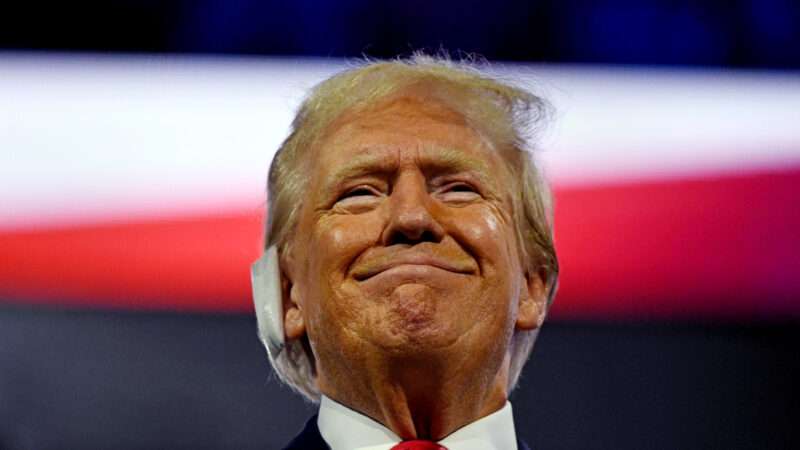
It's only been three days since a gunman came within an inch or so of assassinating former President Donald Trump at a Pennsylvania rally while killing an attendee and wounding two others. But amazingly, the chattering classes are quickly moving on to other things.
As of Tuesday morning, the assassination attempt is now just one major story among several, even at conservative outlets. It's quickly being superseded in the discourse by Trump's veep pick, the kickoff of the Republican National Convention, another terrible Joe Biden interview performance, and the Morning Joe drama over at MSNBC.
Even in this attention-deficient media ecosystem, one would think that a near-miss assassination attempt of a former president and current presidential candidate that killed one other person would be more than a three- or four-day story.
A major factor in everyone moving on is that the shooter, Thomas Matthew Crooks, lacked any obvious motivation for his attempt on Trump's life. The 20-year-old was a registered Republican who'd given a small amount of money to progressive candidates. We have yet to discover a manifesto or a string of social media posts that might offer some clue for why he carried out his crime.
That's made it hard for conservative media to sustain the criticism that Democrats are partially (or wholly) responsible for Crooks' crime because they called Trump a threat to democracy, the next Adolf Hitler, and whatever else.
(It doesn't help that some of those on the right blaming Democrats' rhetoric for the shooting have said equally inflammatory things about Biden.)
Nor do the facts of the shooting provide much fodder for the improbable conspiracy theories that this was a false flag attempt or a sincere deep-state plot.
We're instead left with the unsatisfying explanation that Crooks was another loner prompted to violence by nihilism and not some form of legible political fanaticism. And there's only so much that can be said about a seemingly random act of violence.
Yet, we swiftly move on from the randomness of an almost cataclysmic near-assassination of Trump at our peril. Increasingly, randomness is the defining feature of American politics.
The inescapable takeaway from the last eight years of the Trump era is that articulable narratives about declining political institutions, structural economic changes, voters' ideological realignment, etc., explain fewer and fewer of the political outcomes we actually see.
Big, neat stories just leave less and less of a trace on how people vote, which politicians get elected, and what policies they enact.
Our politics are just too weird, too chaotic, too over-mediated, and too random for that. Filling that void is the void itself.
Ross Douthat argues in The New York Times today that the swirl of randomness and chance that follows Trump wherever he goes, almost felled him, and just barely saved his life is also what explains his dominance of the political scene right now.
"The man has survived self-disgrace and countless political near-death experiences, he's poised for the greatest comeback in American political history, he just turned an attempted assassination into a Renaissance painting of bloodied defiance….You either see him as the defining figure of the age or you don't see him at all," writes Douthat.
A similar randomness is playing out on the Democratic side of the aisle too.
Democrats have been trying and failing to figure out what an enduring, winning liberal coalition looks like in a time where coherent political coalitions stubbornly refuse to congeal.
Without a "chaos candidate" of their own, they've settled on the ultimate placeholder in chief, Joe Biden, a man experienced enough to credibly offer some sort of stability while still being malleable enough to jump on whatever popular trend could capture a winning share of left-leaning American voters.
They placed all their chips on the performance of an 81-year-old man who was already unpopular and has gone into obvious, serious cogitative decline at the perfect moment to sink the party's chances of retaining the White House.
It seems increasingly likely then that this election will be determined as much by a slight turn of Trump's head and a few misfiring neurons in Biden's as it will be by either man's record in office or plans for a second term.
The takeaway from the 2024 election being the chaos election isn't that nothing matters. Rather, it's that the result should matter a lot less.
If the next president isn't the person who won the argument, assembled a die-hard coalition, or forged a new consensus for governing the country, it stands to reason that that next president should command a lot less control over the government and individual citizens.
If, as Douthat muses, "there is no obvious next political stage for a civilization's development," then maybe the next president should give up on trying to impose whatever that next civilizational stage might be.
To be sure, chaotic, random politics doesn't equal libertarianism or even suggest growing support for libertarian ideas. Seemingly the opposite is true.
But it does mean people will quickly come to reject and resent the next administration's efforts to govern the country and control their lives, regardless of whether that attempted control comes from Team Red or Team Blue.
The post The Chaos Election appeared first on Reason.com.







